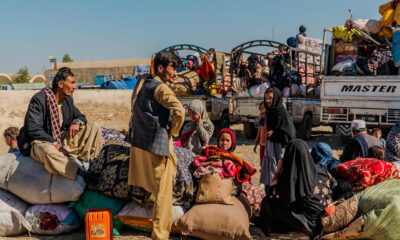Latest News
Afghanistan’s opium cultivation drops by 95% this year: UNODC
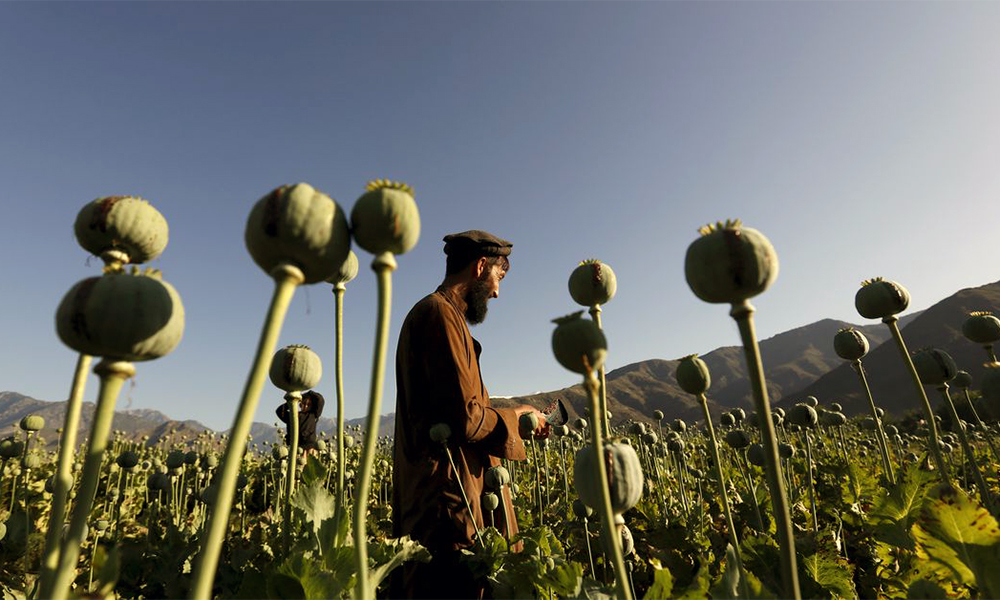
The United Nations Office on Drugs and Crime (UNODC) said Sunday that opium poppy cultivation in Afghanistan has plunged by an estimated 95 percent following a drug ban imposed by the Islamic Emirate of Afghanistan in April last year.
According to a statement issued by UNODC, this sharp decline in the opiate economy in Afghanistan is expected to have “far-reaching consequences”. The agency highlighted the urgent need for enhanced assistance for rural communities, accompanied by alternative development support to build an opium free future for the people.
UNODC said opium cultivation fell across all parts of the country, from 233,000 hectares to just 10,800 hectares in 2023.
The decrease has led to a corresponding 95 percent drop in the supply of opium, from 6,200 tons in 2022 to just 333 tons in 2023.
The sharp reduction has had immediate humanitarian consequences for many vulnerable rural communities who relied on income from cultivating opium.
Farmers’ income from selling the 2023 opium harvest to traders fell by more than 92 percent from an estimated
$1,360 million for the 2022 harvest to $110 million in 2023.
“This presents a real opportunity to build towards long-term results against the illicit opium market and the damage it causes both locally and globally,” said Ghada Waly, Executive
Director of UNODC.
“At the same time, there are important consequences and risks that need to be addressed for an outcome that is ultimately positive and sustainable, especially for the people of Afghanistan.
“Today, Afghanistan’s people need urgent humanitarian assistance to meet their most immediate needs, to absorb the shock of lost income and to save lives,” Waly added.
“And over the coming months, Afghanistan is in dire need of strong investment in sustainable livelihoods, to provide Afghan farmers with opportunities away from opium,” she said.
The strong contraction of the opium economy in 2023, is expected to affect Afghanistan’s economy on a larger scale.
Many farmers turned to cultivating wheat instead, with an overall increase of 160,000 hectares in cereal across a number of provinces.
While wheat cultivation may alleviate food insecurity to some extent, the crop generates much less income than opium, and farmers across four provinces, Farah, Kandahar, Nangarhar and Helmand, lost around $1 billion in potential income in 2023 by switching to wheat, UNODC said.
The agency stated that beyond Afghanistan, less heroin may lead to reduced trafficking and use – or it could spur the emergence of harmful alternatives, such as fentanyl and other synthetic opioids.
Trafficking in other drugs, namely methamphetamine, has surged in the region, UNODC stated.
Latest News
Red Cross official seeks ‘staggered’ return of Afghan refugees from Pakistan
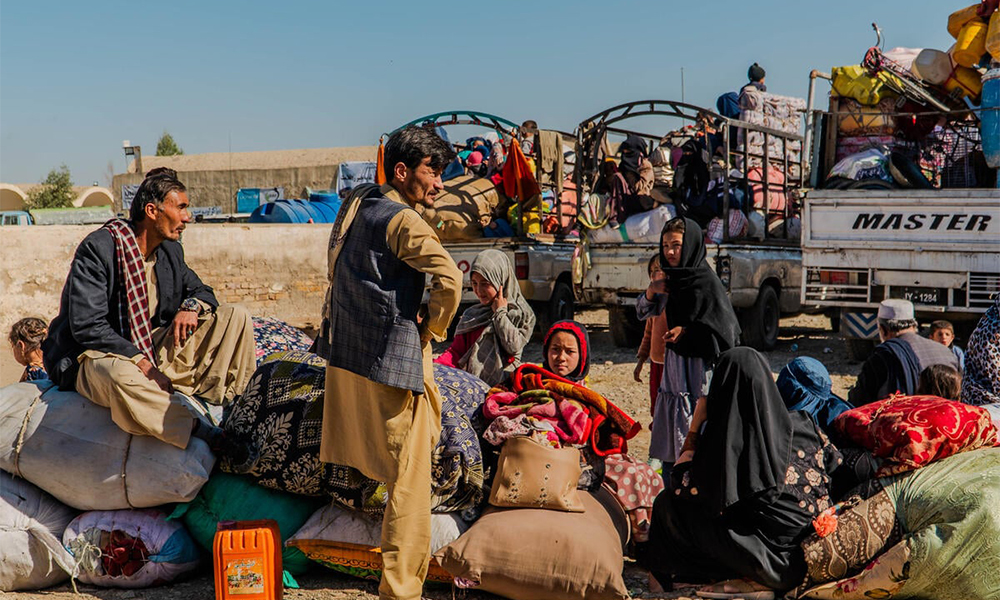
A senior Red Cross official has called for the return of Afghan refugees from Pakistan to occur “in a more staggered way” so Afghanistan can better absorb them.
“It will be important to work with the government of Pakistan in 2024 to ask that if there are going to be returnees,” that they arrive “in smaller numbers at a time just so it is more manageable on the Afghan side,” said Alexander Matheou, regional director, Asia Pacific Region for the International Federation of the Red Cross, Voice of America (VOA) reported on Saturday.
Speaking in the Qatari capital, Doha, Matheou told journalists on Friday the challenges facing Afghan returnees from Pakistan was one of several pressing issues he discussed with the officials of the Islamic Emirate in Kabul.
“You will be aware that over half a million have crossed the border over recent months, and it is likely that we will see large numbers of new arrivals in the coming months,” he said.
“I imagine this is probably the largest population flow in a short period of time in Asia since the population movement from Myanmar into Bangladesh in 2017,” he added. “So, it is a significant event.”
Since October, Pakistan has expelled more than 500,000 Afghan refugees who lacked proper documentation.
Matheou noted many of the returnees have lived in Pakistan for decades and are ill-equipped to begin a new life in a country that to them is unknown, without government or international support.
He described the returnees as being in generally poor health, especially the children, who account for nearly half of all returnees.
“The evidence of that was we visited clinics where they reported a real spike in cases of acute malnutrition coming from the arrivals from Pakistan.
“We visited routine immunization programs of the IFRC and the Afghan Red Crescent in the villages, and there it was clear looking at the children that as well as being anemic, you could see wasting and stunting among the children,” he said.
Latest News
Turkmenistan committed to complete TAPI energy project
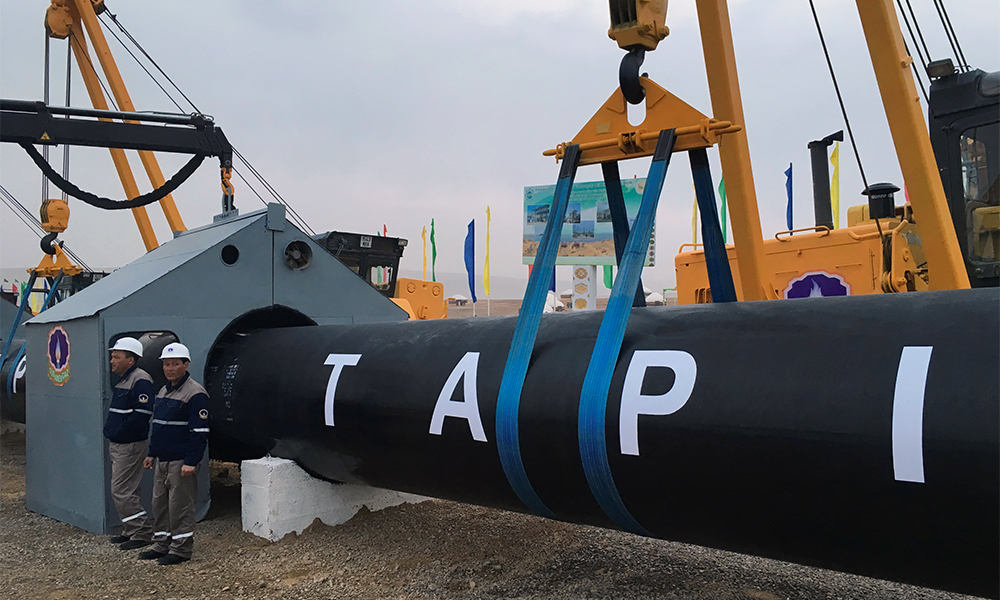
Turkmenistan is committed to complete the Turkmenistan–Afghanistan– Pakistan–India (TAPI) energy project together with the regional countries, Muhammetmyrat Amanov, CEO of TAPI Pipeline Company Limited, said.
“Turkmenistan is making significant progress on the TAPI natural gas pipeline, which aims to supply 33 billion cubic meters annually to South Asia” Amanov said speaking at the Turkmen Energy Investment Forum (TEIF 2024) in Paris.
He highlighted that the Turkmenistan section of the pipeline is complete and the ongoing discussions to advance the project beyond Turkmenistan are in strict alignment with international standards.
Amanov said the project emphasizes environmental sustainability by leveraging natural gas to reduce emissions significantly compared to coal and oil, thereby tackling indoor pollution and enhancing regional air quality.
“In light of the ongoing project developments, Turkmenistan remains committed to upholding international law, fulfilling its obligations, and adhering to international norms and regulations,” he stressed.
Latest News
Three road construction projects launched in Kabul
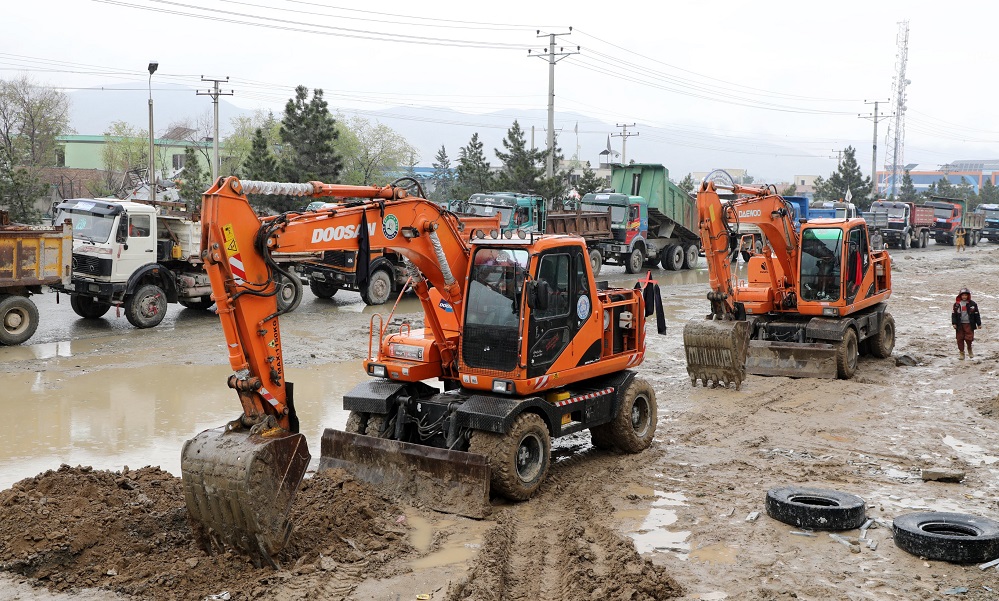
Three road construction projects worth about one billion Afghanis started in capital Kabul on Saturday.
The projects were inaugurated by Deputy Prime Minister for Economic Affairs Mullah Abdul Ghani Baradar.
The projects are: the second phase of Kotal Khairkhane road, the first part of the Shahid square to Qasaba, and the Airport road to Gumruk.
In the inauguration ceremony, Mullah Baradar said that Kabul municipality is working hard to beautify and regulate the city, and people should cooperate with the government in protecting public benefit projects.
He directed the officials of Kabul municipality to complete the mentioned projects on time and with good quality.
The second phase of Kotel Khairkhaneh road is 2.5 kilometers long and 60 meters wide. Thie road will cost 364 million Afghanis and will be completed in 20 months.
The Shahid square-Qasaba road is 1.8 kilometers long and 45 meters wide, which will be built at a cost of 175 million Afghanis in one year.
The Airport-Gumruk road is 2.7 km long and 60 meters wide, which will be completed at a cost of 407 million Afghanis in 20 months.
The projects are funded by Kabul Municipality.
-

 World4 days ago
World4 days agoNorth Korea officials visit Iran in a rare public trip
-

 Sport4 days ago
Sport4 days ago‘Serious talent’ Fraser-McGurk bonds with Warner to light up IPL
-

 Latest News4 days ago
Latest News4 days agoOver 1,000 Afghan refugees forced out of Pakistan in one day
-

 Regional2 days ago
Regional2 days agoNew UK sanctions target Iranian drone industry
-

 Sport2 days ago
Sport2 days agoAfghanistan beat Iraq 5-3, inch closer to Futsal World Cup berth
-

 Regional3 days ago
Regional3 days agoTurkey accuses U.S. of double standards over Gaza in rights report
-

 Latest News2 days ago
Latest News2 days agoEU allocates 17 million euros to support Afghans on the move
-

 Latest News1 day ago
Latest News1 day agoPakistan extends registered Afghan refugees’ stay till June 30


